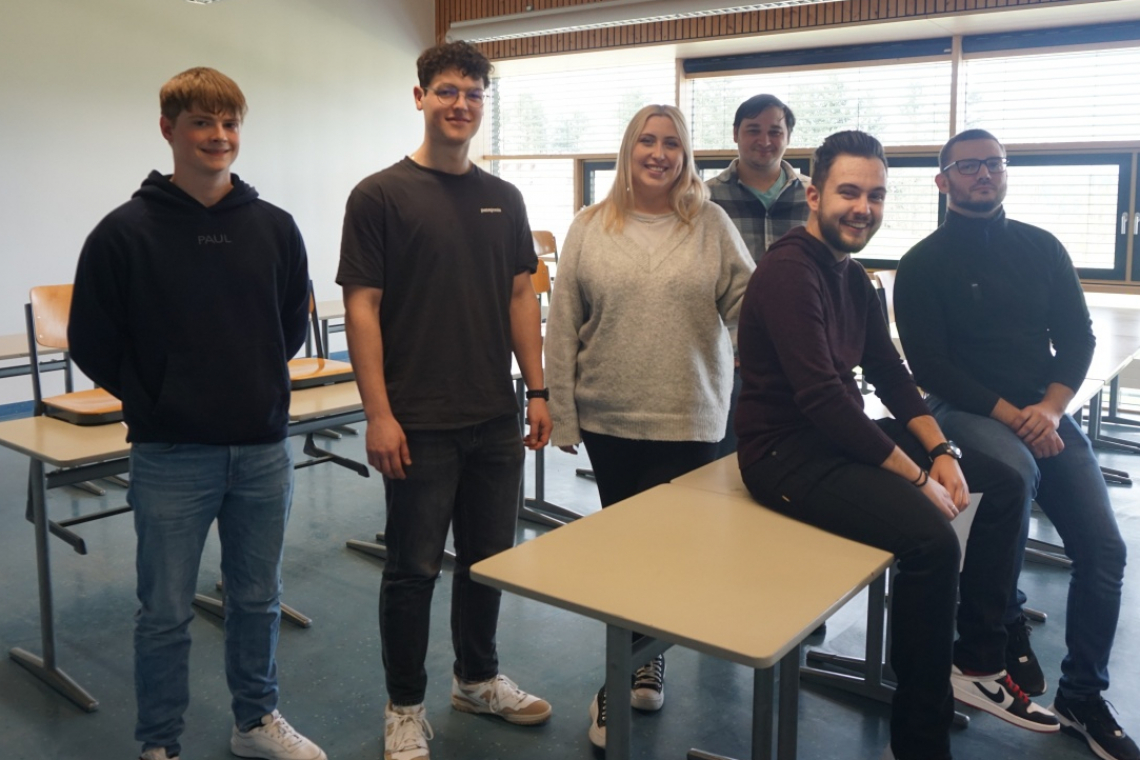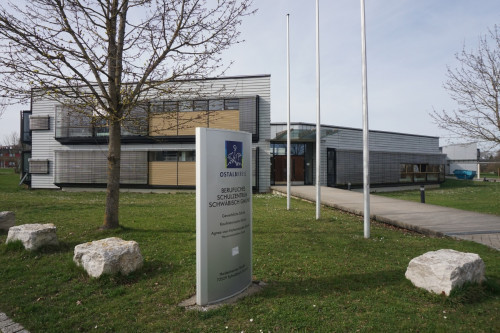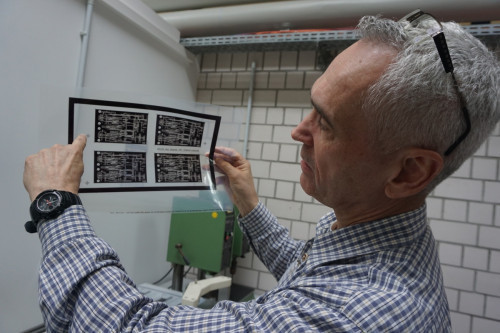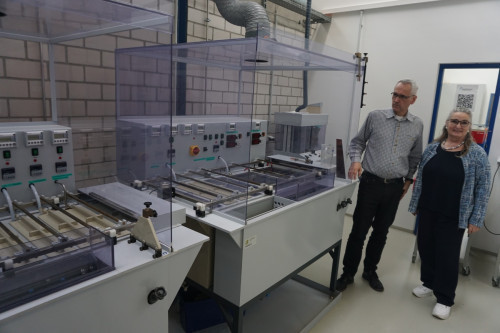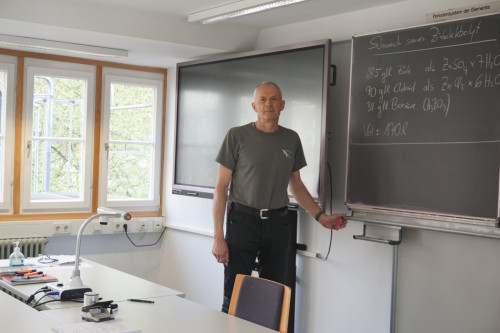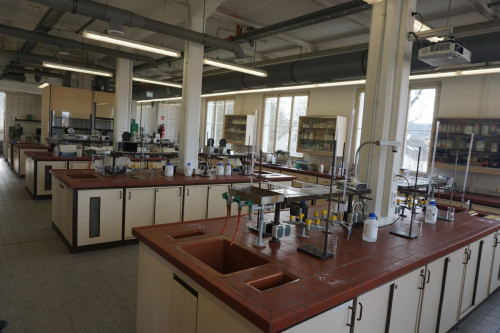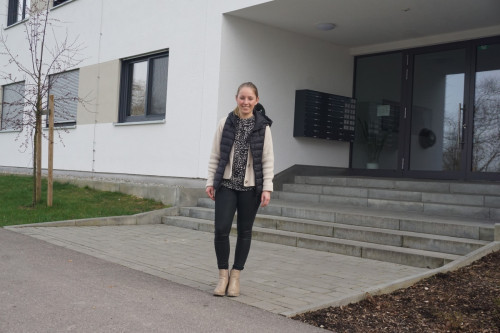Gewerbliche Schule Schwäbisch Gmünd trains the specialists of tomorrow in electroplating and surface technology. Class leader Ulrich Urban and other practice-oriented teachers meet Generation Z (GenZ) here - and arouse fascination for the profession and the industry with sophisticated teaching and accommodation concepts.
It is one of the most important schools for surface coaters in Germany: the Gewerbliche Schule Schwäbisch Gmünd - only 20 minutes by car to the east from the surface technology university in Aalen and around 40 minutes to the west from the Baden-Württemberg state capital Stuttgart. It is a location with a long tradition, a focal point for the many hidden champions in the region who continue to rely on electroplating and surface technology - despite the high energy prices and the demographic difficulties facing their companies. However, the school's reputation radiates beyond southern Germany. During their three years of training, students from all over Germany move from their training places in the local electroplating plants to Schwäbisch Gmünd for three weeks of block instruction each quarter. "The trainees even come from Berlin, where there are very interesting electroplating companies such as Atotech," says Ulrich Urban, head of the surface coating class and himself a former pupil of Gewerbliche Schule Schwäbisch Gmünd.
Technical and practical expertise in demand
Urban's career path did not immediately lead to electroplating. He started at school with an apprenticeship as an electrician, then completed his secondary school leaving certificate and A-levels, studied electroplating technology in Aalen and worked for years as a commissioning engineer for electroplating systems and later as the plant manager of a chemical company that regenerates ion exchangers. In 2006, he finally became a scientific lecturer in Schwäbisch Gmünd. He has the greatest specialist expertise at the school and enjoys an excellent reputation among his pupils. However, the other teachers of the approximately 50 trainees per year have also acquired most of their knowledge during their electroplating studies in Aalen and in their professional lives, emphasizes Dr. Christa Hannak, Head of the Surface Coating Department.
In the modern, shiny, silvery school building on Heidenheimer Straße, which only opened last fall, a look into the trainees' classroom brings back memories of their own school days. A wide blackboard lines the back of the classroom and a card with the periodic table of chemical elements adorns a side wall. The lesson is just beginning, students and teachers are taking their seats, there is a slight smell of chalk in the air, some are still looking at their papers because they have a social studies exam coming up in the next lesson.
GenZ: Curious, motivated, fascinated
What is on the minds of the new generation of electroplating and surface technicians, most of whom are from the so-called Generation Z, i.e. born between 1995 and 2010? There is, for example, 21-year-old Carlo, an apprentice at Schlötter in Geislingen an der Steige, who would one day like to succeed his mother as manager of a contract electroplating shop and is learning the tools of the trade here. Or Franziska, who is training at Betz-Chrom in Munich and switched from the cosmetics trade to surface coating when an internship at her current training company sparked her interest.
Other students such as Artures and Negrutiu, who are already in their early 30s and late 20s, started out as unqualified workers or temporary workers at Carl Zeiss Oberkochen and Rieger Metallveredlung, where they were given the opportunity to train to become sought-after specialists. Like most of the others, 20-year-old Jannes and 21-year-old Jannick enjoy the subjects of physics, chemistry and math. If this is not the case, the trainees receive remedial teaching at an early stage, which is continued at the training location as required. Now in their third year of training, Franziska and the five young men who answered the journalist's questions have all caught the scent and discovered what a varied and highly interesting field of training they have chosen for themselves. They appreciate being able to make shiny new products from old, rusty things themselves. And that they can use their specialist knowledge to gain a foothold in so many sectors, such as the medical and automotive industries.
"I would never have thought what is coated like this"
Today they know that business and industry cannot do without electroplating. "I would never have guessed what everything is coated like this," Artures recalls the time when electroplating was still unknown territory for him. And Negrutiu is fascinated by the fact that even pasta or his colleague's children's shoes can be electroplated and thus attractively preserved. The common prejudices about this generation, that they are work-shy and have too high expectations, are not to be found here. Instead, there is great confidence about their own future prospects and great curiosity about everything to do with metallization and the associated chemistry. Jannick would even like to go on to university after completing his technical college entrance qualification. Others will probably first take advantage of the good financial entry opportunities and start their careers as soon as they have their training certificate in their pockets.
Sparking enthusiasm for the job
To ensure that the next generation of electroplating technicians can be deployed universally, great emphasis is placed on practical experience. Eight hours a week are spent at the workbench rather than at school. A large technical center in the school and a branch for grinding, polishing, mechanical pre-treatment and electroplating in another part of Schwäbisch Gmünd are available for this purpose. Ulrich Urban is waiting in the technical center to answer a few questions about teaching and vocational training. He teaches the subject of vocational competence, BFK for short, in which process and environmental technology and other subjects are bundled, and spends most of the lessons with the students.
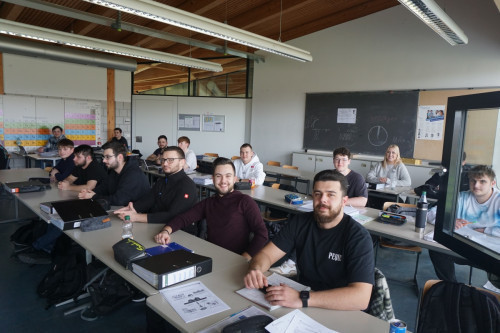 Good class cohesion: The surface technology branch has two classes per year. There are around 25 students in each class
Good class cohesion: The surface technology branch has two classes per year. There are around 25 students in each class
"There are always two or three per class who don't make it"
Despite all the fascination about the possibilities of the profession and its fundamentals, which he is able to convey so well, Urban does not hide the fact that there are also difficulties: "There are always two or three per class who don't make it through," he admits. "It takes a while to get into the flow and realize what a great job it is," he has observed in his 18 years at the school. He likes the fact that the industry is small. For example, many of those who are now in the profession originally trained with him - and now their trainees follow. When you see Urban explaining the circuit board drilling machine in the technical center and pointing out how well the equipment on site replicates the real situation in the company, an infectious enthusiasm flares up in him that gives you an idea of what makes him so popular with his students. To spark this fascination for electroplating, he likes to start with gold for first-year apprentices. And it's not just about applications in the jewelry industry: "Due to the increase in fine electronics, many companies have specialized in technical gold," Urban recounts an anecdote. During her technician training - which is offered in Schwäbisch Gmünd as well as master craftsman training - one student was given the task by her training company of reducing the thickness of a gold layer in a strip electroplating process to just 1 μm. The strip electroplating process was not technically capable of doing this, but in her final thesis, her trainee technician succeeded in describing a method with which the layer could be reduced to around 1.1 μm - a saving of one kilogram of gold worth 70,000 euros per day - a sensational achievement.
Extensive equipment
After the presentation of the PCB drilling machine with its two-axis control and the drill, which automatically picks up the various drill heads depending on the program, Urban continues his tour of the technical centre, showing the baths and rinses for the PCBs as well as the extensive analytical equipment with grinding tables and light and X-ray fluorescence microscopes. "If you have learned electroplating using the example of the printed circuit board, it is so complex that you are also equipped for the trade," says the vocational school teacher with conviction. Of course, this does not mean that other processes are not used in Schwäbisch Gmünd. Functional electroplating is taught using the example of hard chrome plating - here too by a specialist with practical experience, Birka Schunter, who used to be a plant manager in a hard chrome plating shop. In decorative electroplating, the curriculum includes processes such as acid copper, cyanide copper, nickel, zinc and examples of complex baths, such as how a complex bonded electrolyte works using copper as an example. To ensure that strong trainees make progress and weaker ones are not neglected, teaching is sometimes carried out by two teachers. There is also a lot of communication with the training companies to ensure the best possible training success. And what about trainees with a migration background? Urban particularly emphasizes the differences in the school systems, reporting on countries where chemistry is not taught as a school subject. According to him, however, one thing is crucial above all: as much support as there is, 51% of a teacher's success always depends on the students themselves.
Community creates cohesion
For all trainees, who sometimes start their training at the age of 15, it is not only the lessons that are important, but also the community with others. This is why a brand new hall of residence with more than 100 places was opened next to the school at the beginning of 2022. Companies that take advantage of funding only pay a few euros a day for an overnight stay here. Franziska von Betz-Chrom is suddenly standing in the doorway. She also lives here during the block course and is happy to be in contact with trainees in her field, who live here in shared flats for two with a kitchen and also get together in the common room with billiards, table football and darts. Ulrich Urban sometimes drops by for barbecues - and possibly sings one of his learning songs with the trainees.
Difficult recruitment
As in other sectors, the declining number of apprentices at the school is an issue. There were years in which five parallel classes trained as surface coaters, but now there are only two.
Dr. Hannak points out that the companies do the hiring and the school is only a dual partner. Nevertheless, everything is being done to raise awareness of the surface coater profession, which now also includes hot-dip galvanizing following a training reform. "We're present everywhere, at the training days and at the in-house careers day for pupils from the surrounding schools. There is also the opportunity to do an internship at the school," says Dr. Hannak. A commitment that will hopefully soon bear fruit again and provide this promising and sustainable profession with more talented young people.
Photos: Robert Piterek




